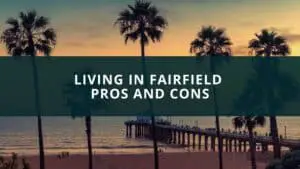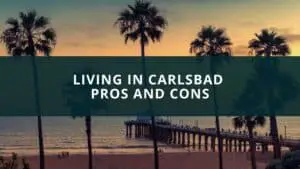Thinking of moving to California? You might want to know about its gun laws. California has restrictive laws regarding what type of guns you can carry and the accessories you can attach to the gun. So, are compensators legal in California?
Compensators are legal in California as long as they’re not on a threaded barrel and don’t have flash suppressing abilities. However, the rules on gun ownership here are restrictive. For example, only a person up to 21 and has the HSC or FSC can own a gun. There are also transportation restrictions.
Knowing about the rules guiding gun ownership, possession, and transfer is crucial if you live in California. There are usually penalties for flouting these rules, which could affect your ability to own a gun. Here, we discuss whether compensators are legal in California and the general rules on gun ownership.
Quick navigation
What is a Compensator and the Rules Guiding Its Use in California?
A compensator is a device attached to the end of a gun barrel that helps the user shoot better. When a gun is shot, there is an explosion resulting from the chemical reaction as the projectile is launched. This explosion releases hot gas that follows the projectile, and the gun usually rises after it’s shot. When you attach a compensator to your gun, it traps the gas and redirects it, reducing the muzzle rise and making it possible to shoot faster.
In California, compensators are generally not considered illegal. But if they go on the threaded barrel, which is illegal in California, they can become illegal. If the pistol compensator isn’t threaded, you should be able to use it in California. You can also use compensators with a rifle. It’s best to go for standalone compensators and avoid hybrid devices. Any device with a flash suppressing property, either functionally or advertised, should be avoided. Adding such devices to your handgun or rifle would make the gun an assault weapon.
Who can own a Gun in California?
California gun laws allow adults at least 21 years old to buy and possess firearms. The Second Amendment of the US Constitution gives people the right to bear arms. But the state law requires Californians to get a Firearm Safety Certificate or Handgun Safety Certificate before getting a gun. This law also won’t apply to everyone as certain groups, such as narcotic addicts, convicted felons, people with mental illnesses, etc., can’t legally own a gun. ‘
Also, a licensed gun dealer can’t sell, supply, or transfer a gun to anyone under 21. In the case of a handgun, you can own one while having an expired handgun safety certificate. It’s necessary to have this certificate unless you have a valid hunting license or want to possess or own long guns. Before getting the FSC, you have to pass the Personal Firearms Eligibility Check written test conducted by the California Department of Justice. Anyone buying a gun has to provide evidence of age, and for those buying handguns, there’s also a need to provide proof of California residency.
While 21 is the minimum age for gun ownership, there are times when someone above 18 but below 21 can get a gun. These are when the person has a valid hunting license, is an active peace officer, or an active federal officer or law enforcement agent who has the authority to carry a gun.
Rules on Transportation of Firearms
When in possession of a gun, there are also rules for transporting and storing it. Anyone transporting a firearm has to be above 18 years, be a citizen of the US, and be allowed to own, buy, receive, or possess a gun. The law requires that the firearms be unloaded and locked in a container inside your car or the trunk. But different rules apply for concealable handguns, shotguns and rifles that can’t be concealed, and assault rifles. Handguns mustn’t be concealed when inside your vehicle. This applies to the gun owner regardless of whether they’re the passenger or driver. The gun owner must also walk to and from the vehicle with the firearm or carry it in the locked container.
In the case of it’s a non-concealable firearm such as shotguns, carbines, submachine guns, and rifles. These firearms must be unloaded while in transport, but they don’t necessarily have to be locked. However, federal laws require that the gun be locked in a gun rack or container when in a school zone. i.e., anywhere within 1,000 feet of a K-12 school. This law only applies in particular cases.
A locked container should be fully enclosed and locked, not the glove compartment, utility compartment, or any container where someone can pry the gun when it’s locked. It’s a criminal offense to carry concealed firearms, loaded firearms, or have unlawful possession of an assault weapon. Doing such without any legal defense could attract jail terms and fines. So, it’s best to avoid such.
There are also places where you can’t take a gun. Those are schools, government budlings, public meetings or buildings, the governor’s mansion, public transit facilities, passenger vessels, and airport terminals. Additional restrictions exist on armor-piercing bullets, stun guns, silencers, laser pointers, and scopes. For concealed weapons, you need to have a concealed carry permit before lawfully carrying a concealed firearm, whether loaded or unloaded in public. It’s also against the law to openly carry a loaded or unloaded gun except in some cases. It’s usually the police chiefs and county sheriffs that issue licenses for firearms.
Rules on Assault Weapons
The California law defines what assault weapons are and bans BMG rifles and assault weapons. This means that a person can’t manufacture, transport, distribute, import, give, or sell these firearms. But there are very few instances where they might not be illegal. You need to transport them properly in those circumstances where they’re legal. That means it has to be stored in a container and unloaded too. There are only a few cases where you can assault weapons to and from. They include:
- The private property of the gun owner
- Firing range
- Another person’s property where the gun owner has express permission to bring firearms
- Premises of a Fish and Game Code licensed shooting club
- Public land when the agency in charge has given permission
- Firearms exhibition, education project, or display organized by law enforcement or recognized firearms organizations.
In Conclusion
Compensators aren’t illegal in California as long as they’re not threaded. But there’s much more to know about general gun ownership in the state. It’s advisable to talk to an attorney before you decide to own a gun.



